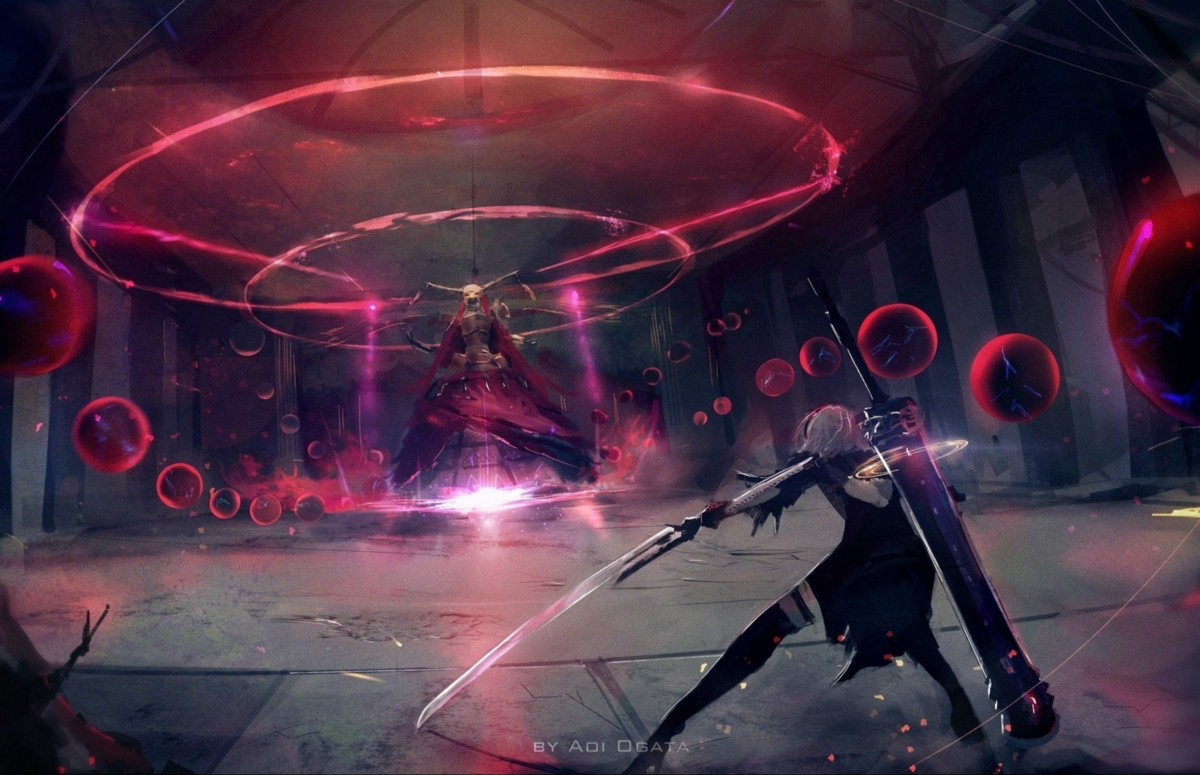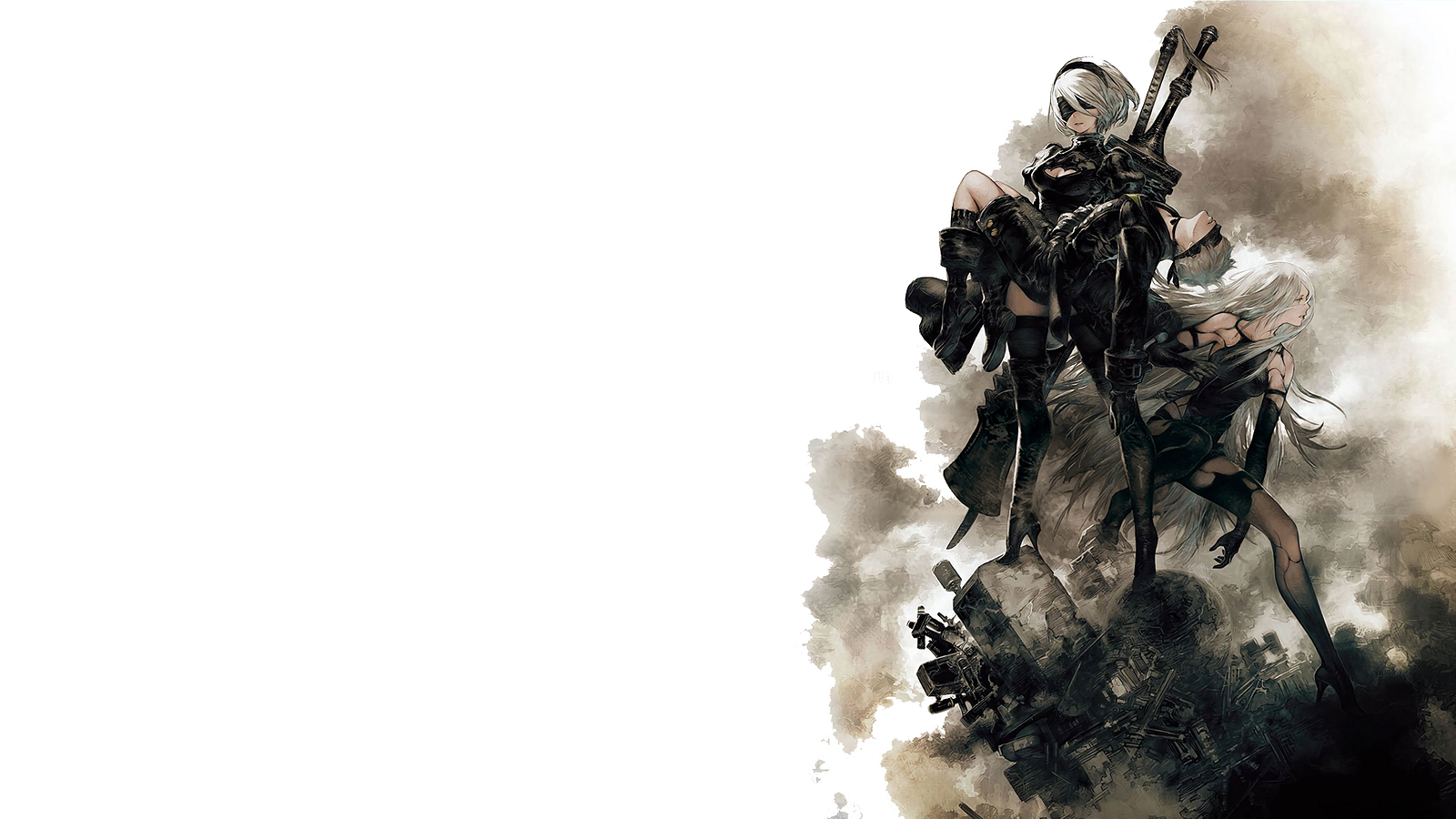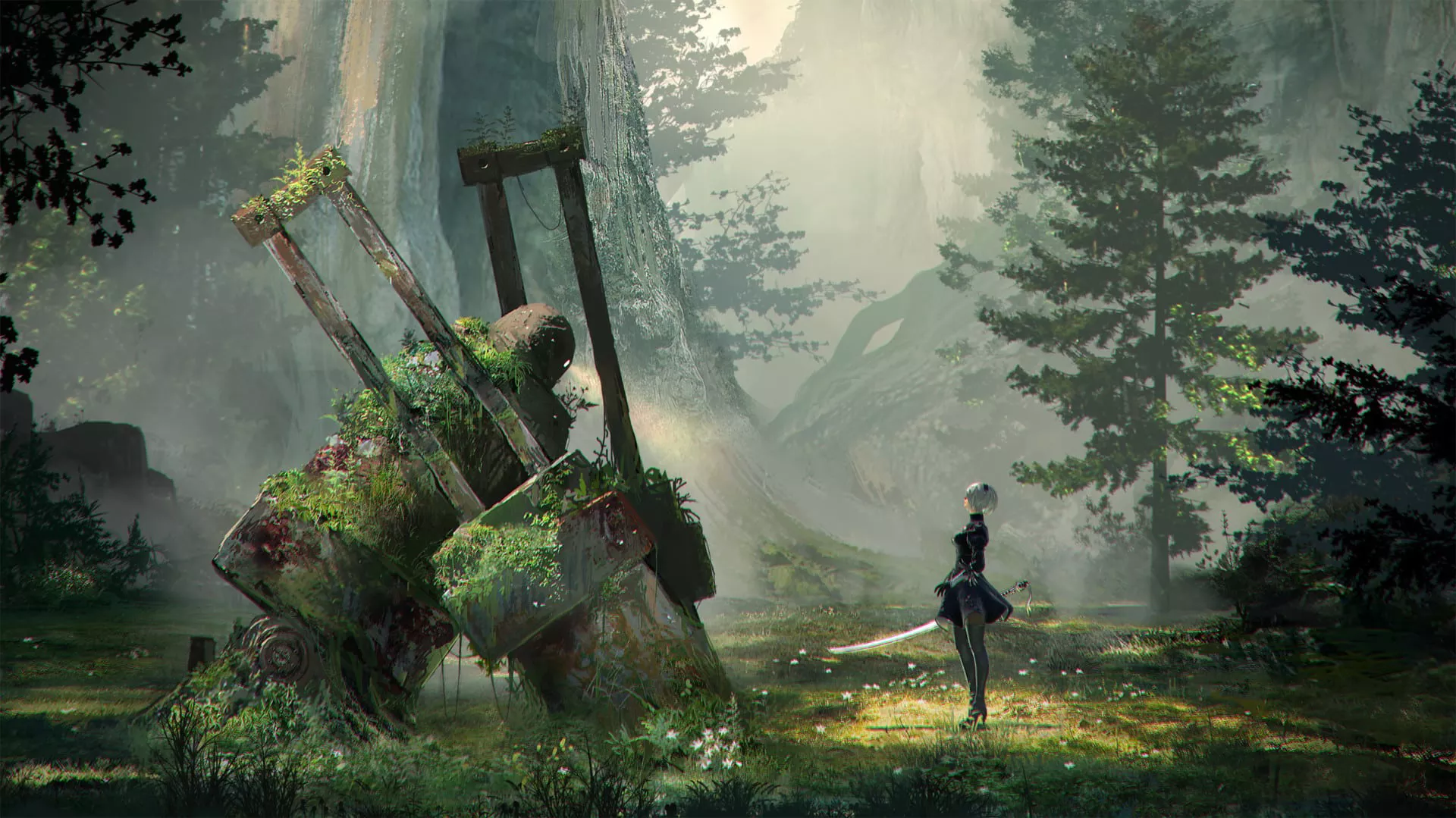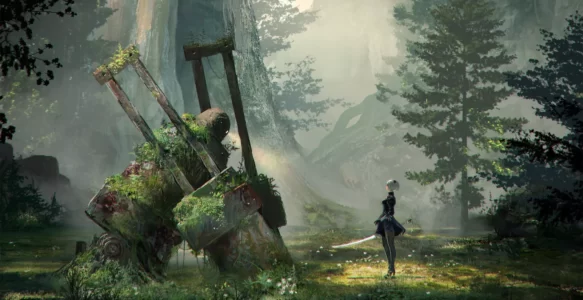Note: this article on NieR: Automata was originally published on Medium on June 5, 2019.
There’s nothing wrong in carrying the weight of the world.
Two days ago I approached a friend of mine, telling him I didn’t give a damn if NieR: Automata had been released two years ago; I needed to write something about it. Thank God I actually decided to do it.
Because NieR: Automata is a masterpiece. No excuses. And I’ll do my best to show you why (trigger warning: there will be some mild swearing here and there).
Let’s play a game. Open the song below and keep it in the backgroundfor a while, while you read. You can thank me (or insult me) later, if you wish.
City Ruins
Only an asshole would get to the end of NieR: Automata without squeezing his heart in both hands. Problem is, this world is full of assholes.
And the sheer fact this world is full of them is at the root of every major plot point in NieR: Automata. Apocalypse, assassin robots, secret plots and other shenanigans that all bring to the same conclusion: humanity sucks, and it does because we’re all part of it. But we can at least make an effort and make this a better place — by trying not to risk extinction before an alien threat shreds the planet apart, possibly.
Now, follow me on this journey. We’re amidst city ruins. Gloom and dust guide our steps, as we put bullet holes into this or that machine life-form. Why are we doing that? Because that is our mission. We are programmed to do it, we are programmed to destroy the enemy.
Our issue is that we were programmed by humans, according to humans. Even if, in the above paragraph, we swapped ‘machine life-form’ with ‘soldier’, it would make no difference. Because NieR is about war too, of course, but it also shows how empathy can sprout on the battlefield. Just like The Boss taught us gamers a long time ago… Except it’s a trifle more difficult to do it via machines and humanised androids.It’s a trifle more difficult to do it with metaphors.
And yet, NieR does it. It starts as a pretty standard action game, post-apocalyptic as many others, machines against machines, and we all know from the start that the intelligent machines will win on the stupid ones. But Yoko Taro wants us to know that we’re not ones to decide which machines are intelligent and which ones are stupid. Both of them can feel empathy — even if ‘emotions are prohibited’ and ‘machines can’t have family connections.’ Both deserve to live in the same way.
Stop your virtual walkman now, if the song isn’t over yet. There’s another thing you must learn. And if this song doesn’t give you chills down your spine, regardless of what you know or don’tknow about NieR, let me tell ya, you should stop reading right now.
A Beautiful Song
You’re in a theatre. All you want is to be beautiful, skilled and brave for those who are looking at you from those seats before the stage. You dance, you sing, you perform, you breathe in the smell of wood and you get inebriated with adrenaline. You got all dressed up for that special someone in the audience, someone who’s admiring the very best of you.
Lights go back on. The theatre is full; yet, it empties instantly before your eyes, as you notice the only seat that matters is empty. That special person, someone who’s never even considered you, isn’t there. And everything you did was for them.
After reading this brief story, someone will recognise a specific series of events happened in the game. Others will find a personal experience, because we’ve all been there: sometimes, that person just can’t love us, and they never will. And all this brings rage. Sometimes, it leads to madness.
Everything we believe in can lead us to madness.
Whether it be a belief, a dogma, a crush on somebody, madness is always behind the corner, and it becomes so as soon as our beliefs and desires turn into obsession. Which can hurt whoever’s close to us, even when they don’t deserve it.
Why is this absolute nobody being so patronising, you ask? Because NieR is about this too. It’s empathy, folly, rage, beauty and disappointment, sadness and resignation. It is also about love; love for video games and stories, and one I’ve rarely witnessed in my years as a gamer. An experience I’m glad to have lived now, as a young adult.
Next track. Because every darkness hides a hidden light somewhere.
Pascal’s Hope
When NieR starts, you land on a planet swarming with old enemies willing to kill you, but you soon realise something’s wrong. Not all of them are crazy or aggressive; some are harbouring a spark of consciousness, a glimmer of love. They imitate the only model they’ve seen around them for years: human behaviours. And this breaks your heart.
Pascal is a secondary character. Absolutely secondary. He barely ever brings the main story forward, as he stays focused in his own world and sometimes can even be seen as plain useless(he is not, of course — I love Pascal myself, so take this with a grain of salt). Yet he is still one of the best characters in the game, and it’s easy to feel this way as soon as you meet him for the first time.
In chaos, Pascal has found his own world. He’s found his purpose. He’s found his light in the darkness, while the whole world around him goes to hell. He just wants to be left alone and build his family. And we, as poor and oblivious players, are more than happy to go the extra mile to help him reach that peace.

Pascal is one of the best characters in the game, in a game where it’s difficult to find badly written characters in general. All major secondary characters have their own story, which is always, categorically, a beautiful, touching and personal one. As I said, NieR starts as a simple action game, a sui generis ode to video games; it then evolves in a deep experience studded with appreciative swearing on the player’s behalf, to finally land an ending which teaches you empathy its own way.
Because all you do is follow some stupid android, someone who can’t show a lot of empathy on its own. You feel like a little child who must learn to grow up and love, and then you learn to grow up and love with them. You follow their journey in a hostile and strange world, until you actually find out that, after all, you are a little stupid as well — but not all hope is lost.
You know the drill by know. Last track.
The Weight of the World
And then, it ends. It ends once, and you start again. It ends twice, and you start again, and you discover a whole new game. It ends three times, and you play the third ending twice to see what happened to you-know-who. And then you think it’ll finally end for good, but NieR: Automata still surprises you.
For the last time, it switches game genre and adopts the twin-stick shooter scenario you’ve seen in 9S’ hacking sequences. It does it for one last scene — one that’s harder than anything you’ve faced with 9S so far. Now, at this point, a poor and oblivious player should have learned the drill; by now, you should have learned to feel empathy. But just in case you didn’t, the game thinks, why don’t we go through this one last time?
You die. You die. You die again. You don’t give up, because gamers never give up — humanity, in general, never does give up. That’s who we are. But then you die again, and your pod sends a call for help somewhere, and someone comes to show you love. A complete stranger, in an unexpected ‘Journey Effect’ reminiscent of Thatgamecompany’s masterpiece. You don’t have to carry the weight of the world all on your own. You’re not alone anymore, you actually never were. Nobody is.
And then, NieR: Automataends for good.
In a way you would never expect: by asking you to make one last gesture, to confirm it several times, knowing that your sacrifice as a player will save someone else’s experience.
You select ‘Yes’ so many times you’re surprised of your own self. You just do it, because damn itif this experience has left a mark on you. Damn itif you’re a good person. Otherwise, what the hell was this all about? What was this all about, if you’ve learned nothing?

And then you do it. You don’t know why, it’s a complete stranger, you could even despise him. The game itself tells you so. But you don’t care. You leave a message of encouragement for those who suffered, and you do it.
NieR: Automata ends — for real, this time. For the fourth or fifth time (if you’ve been a good player), you see credits rolling. They leave behind a heart in tears and shattered eyes, and you’re not sure you’ll ever want to see those credits on screen again.
Did you think NieR: Automata had taught you a lesson about empathy, after one or two runs? No, you idiot. Get to the real credits, make
You’re back to the title screen. Your journey is finished. You’ve learned empathy. And perhaps, with your final choice, you might have truly saved someone else’s journey.
You send NieR: Automata straight to the list of your favorite video games of all time, and you instantly realise how the likes of Red Dead Redemption 2, The Witcher, To The Moon, they’ve all taught you something about the human nature. They’ve all taught you something about yourself. If you’ve ever stopped thinking that video games are ‘silly things’, even for just an instant… You should play NieR: Automata, and perhaps another one of the games I’ve just mentioned. Then we can have a real talk.
And, you wonder, who knows. Maybe gamers will save the world from our own selves, after all.




